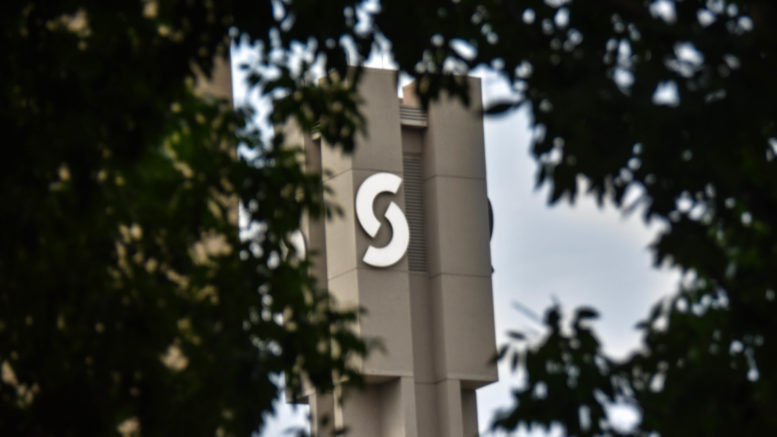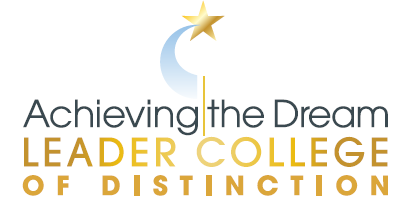Sinclair Community College has been awarded the highest designation by Achieving the Dream (ATD), which the school has been part of for around 10 years. It was given the Leader College of Distinction award.
“It….signifies…that Sinclair is one of the top four community colleges within the Achieving the Dream Network in terms of the efforts we’ve made at transforming ourselves,” said Sinclair assistant English professor, Dair Arnold. “We’ve got a long way to go, but we’re pretty proud of how far we’ve gotten at this point. It was nice to receive that recognition from Achieving the Dream for our efforts.”
Started around 2006, ATD works to improve student success rates and remove gaps between students who have different demographics, including gender, race, age and ethnicity. There are currently more than 300 colleges involved in the Achieving the Dream Network.
“We’re beginning to close a gap between students,” said Sinclair senior vice president and interim provost, Dr. Kathleen Cleary. “We look at every demographic group and our goal is that your demographics will no longer be predictive of whether or not you’re successful.”
The award given to Sinclair recognized it as one of the top four schools whose efforts align with ATD’s goals.

“To be one of the top four, it’s really one of the top four in the whole country,” said Cleary.
To reach its goals of transformation, Sinclair has been focusing on the end goals of each individual student, whether that be to transfer or go straight into the workforce. Students have a MAP created for them that shows all the classes that they plan to take and when they plan to take them.
“We start with the end goal, then we develop an academic pathway for you,” said Cleary. “We want to design a system that will get you where you want to be as effectively and efficiently as we can. It’s starting at the end and then working backwards to make sure you get where you want to be.”
Sinclair has also reduced the number of what it called “developmental classes,” which consisted of courses that the students did not necessarily need for their degree.
“We now have 10% of those classes…because now we try and get you into the class you need to graduate and then provide you with the academic support that you need to be successful,” said Cleary. “We’ve reduced the time to graduation.”
Sinclair’s student advising has also changed. Now, students can have a designated advisor who guides them along their academic path and finds the best ways for them to reach their goals. The advisors are also there for any issues that students might come across.
“Students love advising now,” said Cleary. “They know their advisor is their person and they can go to that person even if they need…a loan…for a car payment or they are having trouble with financial aid and they don’t understand what their next steps are. They just need a friendly face from somebody they know really cares about them.”
Overall, the different departments of Sinclair have come together to ensure students have the best experience and receive the help they need. This can mean directing a student to the correct resources if a staff member cannot personally answer a question.
“Prior to our deep involvement with Achieving the Dream, I felt as if… we were working hard in the classroom, but what was happening outside the classroom, we weren’t really aware of,” said Arnold. “Now…there’s this overwhelming sense… [that] everybody is in this to assist you. We’re one big team working together.”

Even though it has been awarded for its efforts, Sinclair does not plan to stop. The school desires to keep pushing forward to give all students the chance to reach their goals.
“One of Sinclair’s greatest strengths is we’re never satisfied with being good enough,” said Cleary. “That quest for excellence sometimes causes us not to stop and look at how far we’ve come. That’s what I see is the real value of these national awards. It gives us a moment in time to say, ‘We want to be better, but let’s recognize how far we’ve come.’”
To help improve itself as a college, Sinclair has focused on the priorities of alignment, growth and equity. This allows the school to get students the education that they need and the places they need to go after graduation.
“For alignment, we are really working hard to make sure we know what employers need, and we’re getting the right talent to graduate and fill those jobs,” said Cleary. “We also are working with our university partners…to make sure our curriculum is aligned well with theirs and that students can transfer in successfully. For growth, we want more students getting more education – faster and for less money. There’s still a lot of work to be done there. For equity, that has infused every conversation.”
Arnold was the co-chair for Sinclair’s Equity Summit in November 2020, which about 500 people attended. She explained that the college has been examining its exchanges with students to see how it can increase equity.
“The more we understand equity and what it is that we’re doing that might be a…barrier to a student or…of assistance to a student, [the more we can bring]…that all together…so we’re repeating the stuff that is positive,” said Arnold.
As it works to become a better school, Sinclair’s individual faculty members have been learning as they perform their own work. This may be challenging at times, but they continue to work towards their goals every day.
“Sinclair’s considered a national leader in student success and equity,” said Cleary. With all of these eyes on us right now, we have to learn in public. People are willing to make mistakes and to cut each other some slack and recognize when people’s hearts in the right place. That commitment to learning in public, I think is essential to us moving forward in this work.”
Sinclair is extremely honored to have received such an award from ATD, but at the end of the day, its efforts and goals all comes back to the students:

“These awards are meaningless if we’re not serving students well,” said Cleary. “I think we try to always keep our focus on students first. The focus has to be on the students and not the awards.”
Rebekah Davidson
Intern


